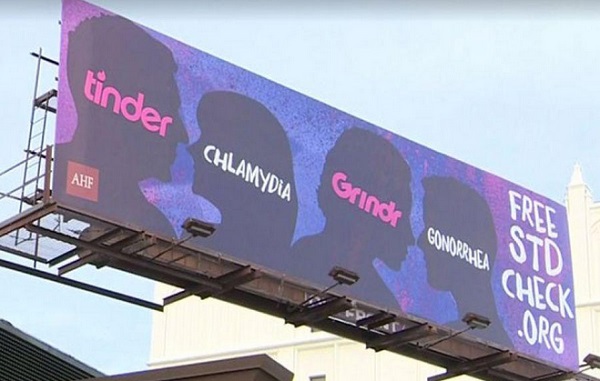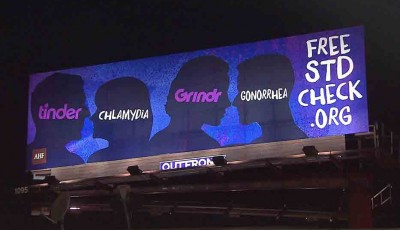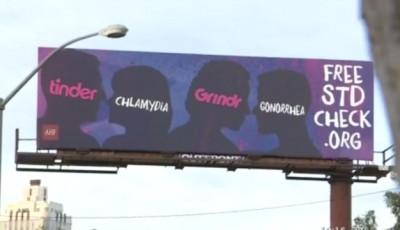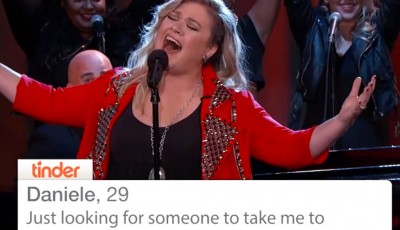Aids group billboard links ‘dating’ apps to STDs
The AIDS foundation behind dozens of Los Angles billboards pointing to the finger at apps like Tinder and Grindr for being the culprits in helping to spread sexually transmitted diseases is standing their ground.
It goes without saying that not all dating apps, or people that use them, are partaking in casual sex which could in fact increase the spread of STIs and STDs, but the Internet itself is an enabler for more sexual anonymity without question, according to the Washington Post. The ad campaign was first revealed this week and it brought serious accusations to the online dating apps, such as sex becoming “as easily available as ordering pizza”. The man has “Tinder” written across his head and is facing a woman with “chlamydia” written across hers.
The organization, which has also lobbied for stricter regulation of the adult film industry and, controversially, against a new preventative HIV drug called PrEP, says that the quick and casual encounters made possible by dating apps are a “digital bathhouse for millennials, wherein the next sexual encounter can literally just be a few feet away – as well as the next STD”. As a effect, Tinder claimed the message of the campaign was baseless and has already threatened to sue the foundation.
Tinder sent the AHF a cease and desist letter Monday demanding that the billboards be removed. The advertisements can be seen on more than 100 bus benches in the L.A. area and 20 billboards, depicting two couples on a shady, bluish background.
Grindr, launched in 2009 and holding the title of top app for gay men, has stopped featuring the AHF paid ads altogether on their app and website. “In the end, we’re all on the same page regarding this issue, as health and wellness concerns us all”.
According to chief counsel for operations, Laura Boudreau, the foundation “has not made any false or disparaging statements against Tinder”, and they will certainly not take down the ads.
The campaign is meant to draw attention to rising STD rates that the foundation said coincides with the popularity of the sites that make hook-ups easier, said Michael Weinstein, the foundation’s president.
However, AHF officials are not backing up, for they still plan to extend the billboards to other cities, such as New York City, Miami, and Fort Lauderdale. Both dating apps are location-based, meaning that they match users with others who are nearby.












